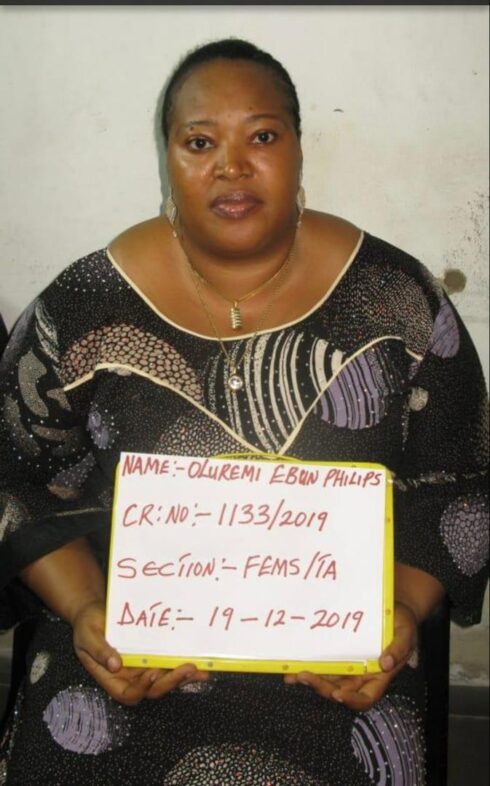A Lagos State High Court sitting in Ikeja has sentenced a businesswoman, Oluremi Phillips brought to court by EFCC, to 17 years imprisonment for a N57,690,000 fraud. The judgment, delivered by Justice I.O. Ijelu on Thursday, December 12, 2024, marks the culmination of a legal battle that began in January 2022.
Phillips, alongside her company, Omritas Energy Limited, faced a five-count charge involving stealing and the issuance of dud cheques. The charges were based on her fraudulent conversion of funds from AYM Shafa Limited, intended for the supply of Automotive Gas Oil (AGO). Despite receiving the payment, neither the product was delivered nor the money refunded. The trial, initially presided over by Justice S.O. Solebo, was transferred to Justice Ijelu following Solebo’s retirement in November 2022.
Key Evidence and Testimonies Presented During the Trial by EFCC
The Economic and Financial Crimes Commission (EFCC) presented a robust case against the defendants. Prosecuting counsel T.J. Banjo called three witnesses and submitted multiple documentary pieces of evidence to prove the charges. The defense, in response, also called three witnesses to counter the allegations.
Count one of the charges accused Phillips and her company of stealing N57,690,000 from AYM Shafa Limited in 2016. Count two detailed the issuance of a dud cheque worth N14,298,075 on April 10, 2017, which was dishonored due to insufficient funds. Phillips maintained a “not guilty” plea throughout the trial. However, Justice Ijelu found the prosecution’s evidence compelling, convicting her and Omritas Energy Limited on all five counts.
Court Sentencing and Restitution Orders
Justice Ijelu sentenced Phillips to nine years imprisonment on count one with an option of a N2 million fine, payable within 90 days. She also received a two-year sentence for each of the remaining four counts, with the terms running concurrently.
Omritas Energy Limited was fined N250,000 for count one and N100,000 each for counts two to five. The court further mandated restitution of N57,690,000 to AYM Shafa Limited, to be completed within 90 days. Failure to comply with the restitution order will result in the winding up of the company.
Implications of the Verdict on Financial Crimes in Nigeria
This judgment underscores the EFCC’s commitment to combating financial crimes in Nigeria. The conviction serves as a warning to individuals and businesses involved in fraudulent practices, particularly in the energy sector. The court’s insistence on restitution emphasizes the importance of compensating victims of financial crimes, restoring public confidence in the judicial system.
By holding both individuals and corporations accountable, the ruling reflects a broader crackdown on financial malfeasance. It also sets a precedent for stricter penalties, reinforcing the message that fraudulent activities will not go unpunished.
EFCC’s Determination to Combat Financial Crimes
The Economic and Financial Crimes Commission (EFCC) has once again demonstrated its commitment to curbing corruption and financial crimes in Nigeria. This conviction underscores the importance of transparency and accountability in business dealings. By prosecuting high-profile fraud cases, the EFCC aims to restore public trust and deter others from engaging in similar acts.
However, to sustain this momentum, the EFCC needs increased citizen collaboration in information gathering. Such partnerships can enhance proactive measures, helping the commission address the root causes of corruption, which has hindered Nigeria’s economic development and international reputation.
The Way Forward in Nigeria’s Fight Against Corruption
This case serves as a stark reminder of the damage financial crimes cause to businesses and Nigeria’s economy. The EFCC’s aggressive stance is pivotal in addressing these challenges, but success requires more robust legal frameworks, public awareness campaigns, and inter-agency cooperation.
For lasting impact, it is essential to sustain anti-corruption efforts beyond high-profile convictions. Citizens must actively support the fight against corruption by reporting suspicious activities and holding leaders accountable. By doing so, Nigeria can reclaim its image, attract foreign investments, and create a more stable economic environment.
Table of Contents
Discover more from OGM News NG
Subscribe to get the latest posts sent to your email.













